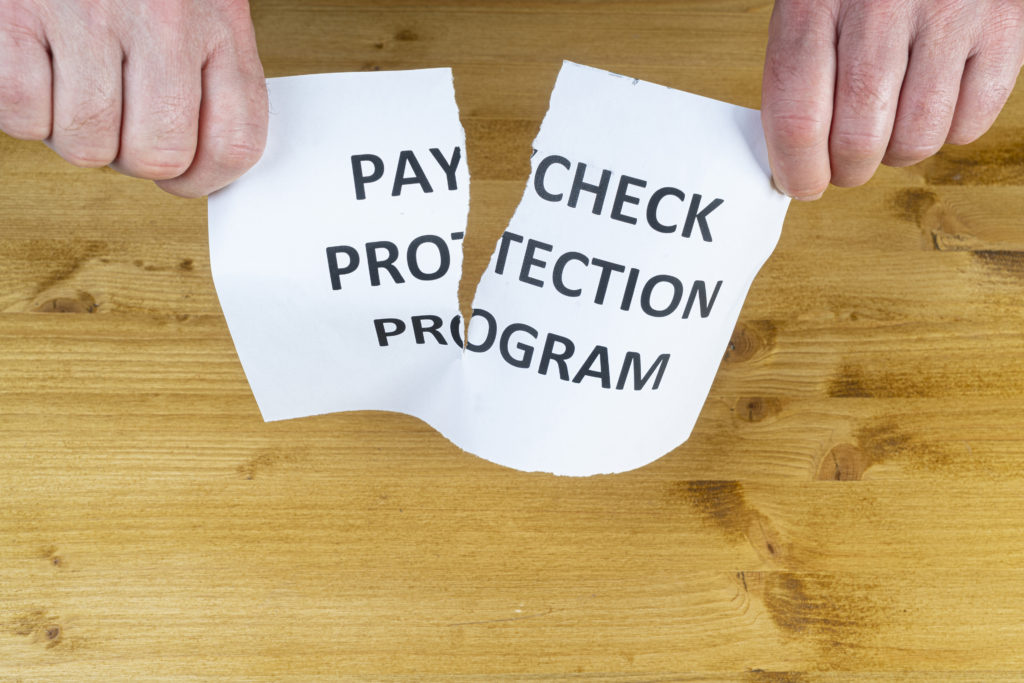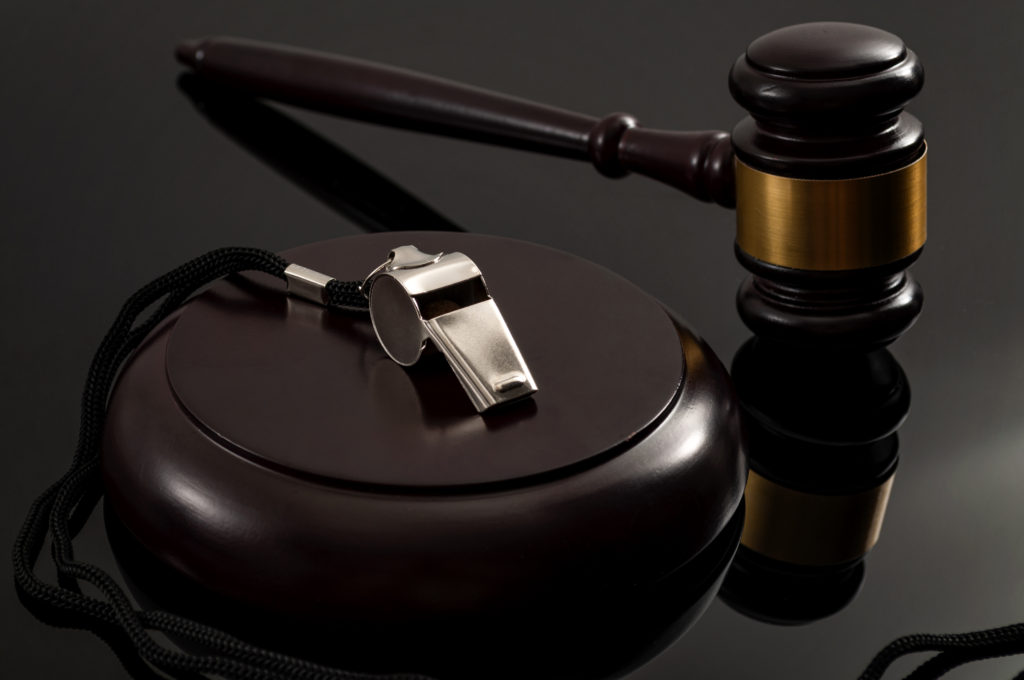FAQs on PPP Fraud

Many businesses have benefited from PPP loans during closures due to COVID-19. PPP funds, however, are supposed to benefit employees by providing financial assistance to businesses to maintain payroll, employee benefits and other business expenses. If you are aware of any PPP fraud by your employer, you have an obligation to report the fraud. Moreover, you are protected from any retaliation for reporting any violations.
Q: What is PPP fraud?
A: PPP (Paycheck Protection Program) fraud includes any misuse of funds from the Small Business Administration (SBA) in response to COVID-19. In an effort to provide financial assistance to businesses during the pandemic. Any business that received PPP money, must use the money for specific business expenses such as payroll, employee benefits, rent, interest on mortgages, and utilities. The intent of the PPP was to ensure that businesses could continue to pay employees and cover necessary businesses expenses during mandatory closures.
Unfortunately, there is a growing concern that businesses have been violating the requirements of PPP. This fraudulent behavior has resulted in the money not being used to pay employees as intended. Examples of PPP fraud include falsifying information on PPP applications, providing inaccurate data regarding employees, and misdirecting PPP funds away from payroll.
Q: What happens if I learn my company committed PPP fraud?
A; If you learn that your company has committed PPP fraud, you must report the fraud. However, there are steps you can take to protect your rights. First, you should review any paperwork you signed as a condition of employment. This will include any employment contract, documents signed during orientation and training, as well as any employee handbooks. These documents often include a company policy that employees will act honestly and report fraud. In other words, you could be violating a company policy by not reporting the fraud. Second, you should consult with an experienced labor law attorney who can not only advise you of the legal issues, but more importantly, will protect your rights.
A: Can my company fire me for reporting PPP fraud?
A: No. If you report PPP fraud, you are protected by federal and state laws as a whistleblower. Any punitive action taken by an employer against an employee for reporting PPP fraud (or any violation of a law or regulation) is specifically protected under laws against whistleblower retaliation. In addition to federal protection, California has very strong labor laws that protect whistleblowers. Specifically, California Labor Code section 1102,5 (in part) states:
An employer, or any person acting on behalf of the employer, shall not retaliate against an employee for disclosing information, or because the employer believes that the employee disclosed or may disclose information.
The broad protection under California law not only protects whistleblowers from retaliation, but also protects an employee who are believed to be a whistleblower by the company. Other forms of retaliation that are prohibited by law include threats, demotions, reduced hours or pay, blacklisting or denying a promotion that is merited.
Q: Can I sue my company if they retaliate against me for reporting PPP fraud?
A: Yes. If you report PPP fraud by your company, and are the victim of retaliation because of the report, you have a right to sue under federal and state law. Moreover, the company can also face significant civil penalties. An experienced labor law attorney can review your case and help you decide what course of action is best. More importantly, consulting with an attorney will protect your rights as an employee and possible whistleblower.
FREE CONSULTATION
Srourian Law Firm, with locations in Los Angeles, Westwood, Woodland Hills, and Orange County is experienced in all aspects of employment law including PPP fraud and whistleblower retaliation, and have aggressively represented employees in Los Angeles, Hollywood, Santa Monica, Orange, Irvine, Anaheim, Santa Ana, Newport Beach, Costa Mesa, Fullerton, Tustin, Mission Viejo, San Clemente, Garden Grove, Laguna Niguel, Brea, Fountain Valley, Aliso Viejo, Yorba Linda, Westminster, Laguna Hills, Cypress, and La Habra.
If you or someone you know suffered employment violations due to PPP fraud or whistleblower retaliation, you may have certain employee rights under state and federal law, and may be entitled to compensation as a part of the class action lawsuit. Please contact us to speak with one of our lawyers for a free consultation.
FAQs on Whistleblowers
Reporting your company or supervisor for violating the law can be frightening. However, reporting workplace violations are important to ensure the rights of all employees, and in some cases protect the health and safety of employees, the public and the environment. Fortunately, federal and state laws protect employees who report violations.
Q: What is a whistleblower?
The term “whistleblower” is used to describe an employee who reports an employer for violating the law. The violation could be an illegal act taken by the employer against the whistleblower, or a general violation with a wider impact. For example, an employee who reports an incident of sexual harassment at work would be a whistleblower. Similarly, an employee who reports an employer for violating pollution laws would also be a whistleblower.
Q: Are whistleblowers protected?
Yes. There are many federal and state laws enacted specifically to protect whistleblowers. In addition to protection from retaliation, whistleblowers can also file a lawsuit against the employer if there is retaliation for reporting the violation of the law. In other words, an employee cannot retaliate (or punish) an employee for being a whistleblower.
Federal law protection for whistleblowers require a “good-faith” belief that a violation of the law occurred. Like many legal terms, it is difficult to define “good-faith,” but courts have generally held that a good-faith belief be a combination of the whistleblower’s subjective opinion as well as an objective basis for the violation. An experienced labor law attorney can discuss the facts of your case and advise you on how to proceed with an allegation against your employer and ensure that your rights are protected under Federal law.
Whistleblowers are also protected under state law, and California labor laws provide significant protection to employees, and are considered among the strongest in the country. For example, under the California Labor Code, an employer cannot retaliate against a whistleblower if the employee “reasonably” believes a violation has occurred which is considered a lower burden than the federal law requiring a good faith belief. Moreover, the California whistleblower is protected even if the employer is cleared of any wrong-doing.

Q: What is considered whistleblower retaliation?
A: Whistleblower retaliation includes a variety of actions such as:
• wrongful termination;
• demotion;
• failure to promote when promotion is merited;
• denying opportunity for training or professional development;
• blacklisting;
• reducing pay or hours;
• reassignment to less desirable task;
• intimidation;
• denying access to resources necessary to perform work duties; and
• making any threat including a threat to report non-citizen employee to ICE or immigration.
Under California law, an employee is protected from workplace retaliation even if the employee did not actually make a whistleblowing report. In other words, employers cannot retaliate against an employee because they believe the employee is a whistleblower.
Q: What can I do if my employer retaliates against me for being a whistleblower?
A: If you believe you are the victim of unlawful labor practices, or that your employer is violating the law or regulations, you have the right to file a complaint without fear of retaliation. For example, if you are the victim of sexual harassment, you have the legal right to file a formal complaint against your employer through the regular channels proscribed in the employee handbook or your employment contract. Similarly, if the wrongful action by your employer is a workplace safety violation or an environmental violation, you have the right to file a complaint to an appropriate governmental agency such as OSHA (Occupational Safety and Health Administration) or the EPA (Environmental Protection Agency) and not fear retaliation.
After reporting the violation, an investigation should be conducted, and your rights as a whistleblower protect you from workplace retaliation. However, if your employer does retaliate, you can file a lawsuit against your employer for whistleblower retaliation. If you prevail, you may be entitled to compensation for lost wages and benefits, physical pain, mental suffering, loss of career opportunities, punitive damages, legal costs and attorney’s fees.
There are strict deadlines on retaliation claims, so be sure to act promptly after the retaliation and speak to an experienced labor law attorney to ensure your rights are protected.
FREE CONSULTATION
Srourian Law Firm, with locations in Los Angeles, Westwood, Woodland Hills, and Orange County is experienced in all aspects of employment law including whistleblower retaliation, and have aggressively represented employees in Los Angeles, Hollywood, Santa Monica, Orange, Irvine, Anaheim, Santa Ana, Newport Beach, Costa Mesa, Fullerton, Tustin, Mission Viejo, San Clemente, Garden Grove, Laguna Niguel, Brea, Fountain Valley, Aliso Viejo, Yorba Linda, Westminster, Laguna Hills, Cypress, and La Habra.
If you or someone you know suffered employment violations due to whistleblower retliation, you may have certain employee rights under state and federal law, and may be entitled to compensation as a part of the class action lawsuit. Please contact us to speak with one of our lawyers for a free consultation.


